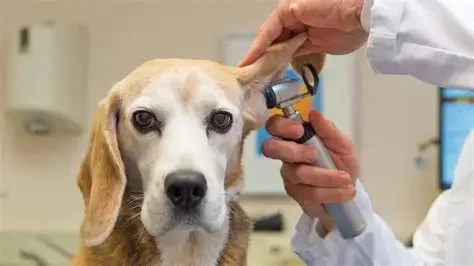How Do You Become a Veterinary Doctor? A Realistic Path to a Rewarding Career
- understanding-the-role-of-a-veterinary-doctor
- academic-foundations-where-the-journey-begins
- the-veterinary-school-admission-process
- life-in-veterinary-school-what-to-expect
- earning-your-license-and-becoming-a-practitioner
- real-world-experiences-from-vet-doctors
- is-this-the-career-path-for-you
1. Understanding the Role of a Veterinary Doctor
Before asking how do you become a veterinary doctor, it’s important to understand what the role truly involves. Veterinary doctors are medical professionals trained to diagnose, treat, and prevent illness in animals—from household pets to livestock and wildlife. But beyond clinical care, they’re often surgeons, dentists, nutritionists, and grief counselors rolled into one.
The work is emotionally rewarding, but also physically and mentally demanding. A vet’s day might include a life-saving emergency surgery, followed by comforting a pet owner after a difficult diagnosis. If you're driven by a deep love for animals and problem-solving, this career can be incredibly fulfilling.
2. Academic Foundations: Where the Journey Begins
2.1 High School Focus Areas
For students wondering early on how do you become a veterinary doctor, the answer starts in high school. Subjects like biology, chemistry, and math are essential. Volunteering at shelters or vet clinics can also give valuable hands-on exposure.
2.2 Undergraduate Degree Requirements
Most veterinary schools require a bachelor's degree or at least a set of prerequisite courses. Common majors include animal science, biology, or pre-vet programs. It’s also crucial to maintain a strong GPA (usually 3.5 or higher for competitive schools) and build extracurriculars like animal handling or research experience.
3. The Veterinary School Admission Process
3.1 Preparing for the GRE (or Not)
Depending on your target schools, you may need to take the GRE (Graduate Record Examination). Some programs have dropped this requirement in recent years, but it’s still widely accepted.
3.2 Application Strategy and Essays
The Veterinary Medical College Application Service (VMCAS) is the centralized system used in the U.S. You'll need letters of recommendation (ideally from a vet), transcripts, and a compelling personal statement. This is your chance to explain why you want to become a vet and what you’ve done to prepare.
3.3 Interviewing for Acceptance
If selected for an interview, be prepared to talk through ethical dilemmas, clinical scenarios, and your motivation for the profession. Admissions teams want to see compassion, resilience, and maturity—not just academic excellence.
4. Life in Veterinary School: What to Expect
4.1 The Academic Rigor
Veterinary school typically lasts four years and includes subjects like anatomy, pharmacology, pathology, and clinical rotations. The curriculum is intense, comparable to human medical school. Long nights and emotional cases are part of the process.
4.2 Clinical Rotations and Specializations
In your final year, you’ll rotate through various specialties—small animal, equine, surgery, emergency, etc. This hands-on training helps you decide where you might specialize after graduation. Some vets go on to do residencies in areas like oncology, cardiology, or exotic animals.
4.3 Building Your Network
Veterinary school is also where you begin forming lifelong professional connections. Mentorships and internships often lead to job offers after graduation. Getting involved with associations like the AVMA early can help build your reputation in the field.
5. Earning Your License and Becoming a Practitioner
5.1 Passing the NAVLE
To practice legally in most regions, you must pass the North American Veterinary Licensing Examination (NAVLE). It's a comprehensive, multiple-choice test that covers everything from diagnostics to ethics.
5.2 State Licensing and Additional Certifications
Each U.S. state (and many other countries) has its own licensing board. Some also require additional exams on local laws or continuing education. International graduates often need to meet equivalency requirements, which may include additional training or assessments.
5.3 Starting Your Career
After licensing, new vets may enter private practice, research, government, or non-profit sectors. Salary expectations for entry-level veterinary doctors vary by region but typically start around $80,000 in the U.S., with room for growth based on specialization and experience.
6. Real-World Experiences from Vet Doctors
6.1 Dr. Lena’s Journey from Shelter Volunteer to Animal Surgeon
Dr. Lena started as a high school volunteer in a small-town animal shelter. She fell in love with the impact a vet could have—not just on animals, but on people. After a tough but rewarding path through school, she now specializes in orthopedic surgeries. “It’s not glamorous, but it’s meaningful. Every limp I fix means a dog runs again. That’s worth the stress.”
6.2 From Career Change to Vet School at 30
Michael was a marketing executive before deciding to follow his childhood dream. “It was terrifying walking into class with students ten years younger, but passion kept me going.” Now working in emergency veterinary care, Michael shares his story to prove that it’s never too late to ask, how do you become a veterinary doctor—and act on the answer.
7. Is This the Career Path for You?
7.1 The Emotional and Financial Realities
Veterinary medicine is not just about cuddling puppies. It can involve euthanasia, burnout, and high student loan debt. Understanding the emotional weight of the profession is just as important as understanding the academic route.
7.2 Where to Learn More and Start Your Journey
Still wondering how do you become a veterinary doctor? The best first step is connecting with professionals. Shadow a vet, talk to students, and check resources like Hidden Brook Veterinary, which offers mentorship programs, pre-vet advice, and curated tools to help you move forward confidently.
7.3 Ready to Take the Leap?
If this path excites you, it's time to start mapping it out. Whether you're in high school, college, or considering a career change, there are resources available to guide you. Explore support communities, take advantage of career prep tools, and find veterinary-specific guidance at Hidden Brook Veterinary to help you turn your calling into a career.












